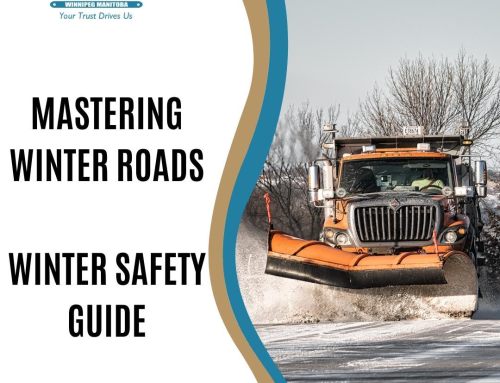 Improving Your Health as a Truck Driver
Improving Your Health as a Truck Driver
Being a truck driver can be pretty amazing. There’s the freedom of the open road, the ever-changing landscapes, and a sense of adventure that most people can only dream about. But let’s be real—keeping up with a healthy lifestyle can be tough. Long hours, constant sitting, and limited food options are just a few challenges truck drivers face daily. Add in the temptation of gas station snacks and drive-thru burgers, and it’s easy to see how the “trucker lifestyle” might take a toll on your health.
But here’s the good news: You don’t need to make massive changes to start feeling better. Small, manageable shifts can lead to real health improvements over time. So, whether you’re a seasoned driver or new to life on the road, here are seven practical and fun tips to help you stay healthy, happy, and energized.
Plan Meals Ahead of Time
It’s a familiar situation: You’re hours into your route, and hunger hits. The only options seem to be fast food or whatever you can grab from the nearest truck stop. But a little planning can help you avoid those last-minute, less-than-healthy choices.
Why It Works: When you plan meals and pack snacks ahead of time, you’re in control. No more impulse purchases that leave you feeling sluggish and drained. Meal prepping also means you’re eating real food with real nutrients, which helps keep your energy up throughout the day.
Simple Fix: Invest in a small cooler for your cab if you don’t have a fridge. This way, you can pack healthier options like sandwiches, salads, fruit, yogurt, or even leftovers from home. Healthy snacks like nuts, cheese sticks, and hard-boiled eggs are easy to pack and don’t need much fuss.
To learn more about the benefits of meal planning, check out the CDC’s guide to improving eating habits.
Choose Balanced Meals with More Whole Foods
Here’s a tip that goes beyond dieting or calorie counting: Focus on eating balanced meals with plenty of whole foods – like vegetables, lean proteins, whole grains, and healthy fats. These foods help fuel your body without causing blood sugar spikes or mid-day crashes.
Why It Works: Whole foods are packed with essential nutrients, fiber, and slow-burning energy. Unlike processed foods, which often contain added sugars and unhealthy fats, whole foods keep you fuller for longer, reduce cravings, and make you feel better overall. Plus, eating more fruits, vegetables, and lean proteins can help improve digestion and even mood!
Small Changes to Try: Start by swapping out packaged snacks for whole food options. Fresh fruit, veggie sticks with hummus, or whole-grain crackers with cheese are easy swaps that make a big difference.
Get more insight into the power of whole foods from EatingWell’s healthy eating tips.
Avoid Sugary Drinks and Prioritize Hydration
Let’s face it: Sugary sodas and energy drinks are hard to resist, especially when you need a quick boost. But while these drinks might give you an instant rush, they’re often followed by a major crash. Plus, sugary drinks can lead to weight gain, high blood pressure, and other health issues over time.
Why It Works: Staying hydrated with water helps you stay alert, focused, and ready for the road ahead. Water is a natural energizer, whereas sugary drinks leave you feeling jittery and sluggish. Hydrating also supports digestion, keeps your skin healthy, and helps avoid those afternoon “slumps.”
Easy Tips for Staying Hydrated: Keep a large water bottle in your truck, and try to finish it by midday – then refill for the second half of your drive. Not a fan of plain water? Add slices of lemon, cucumber, or even berries for a little natural flavour. And if you need a little caffeine, stick to black coffee or tea, but limit it to a couple of cups a day.
For more on cutting down on sugary drinks, check out Healthline’s guide.
Limit Large Portions and Eat Slowly
One of the biggest health challenges on the road is portion control. When you’re eating out, portions can be huge, and when you’re eating on the go, it’s easy to scarf down meals without even realizing it. Eating too fast and too much can leave you feeling overstuffed and sleepy.
Why It Works: Eating slowly gives your brain time to process that you’re full, helping prevent overeating. When you slow down and savour each bite, you’re likely to eat just the right amount for your body. This can also help with digestion and avoid that uncomfortable “stuffed” feeling that makes you want to take a nap.
How to Start: Try ordering smaller portions or splitting a larger meal into two. Eat slowly and pay attention to when you start feeling satisfied. Chew each bite thoroughly and take breaks between bites. Not only will this help you feel more in control of your eating, but it also makes meals more enjoyable.
For more mindful eating tips, check out the CDC’s advice.
Incorporate Movement Throughout the Day
Sitting for long periods is a huge part of the job, but it’s also one of the biggest challenges to truck drivers’ health. Prolonged sitting can lead to stiff muscles, weight gain, and even increased risks of conditions like heart disease and diabetes. The trick? Find small ways to move throughout the day.
Why It Works: Small amounts of movement throughout the day can improve circulation, keep muscles from stiffening up, and even boost your mood. Stretching, walking, or even doing a few squats or lunges during a break can make a world of difference.
Quick Ways to Add Movement: Set a timer to remind yourself to take a short break every two to three hours. Use that time to stretch your legs, walk around and inspect your truck, or do a few basic exercises. If you’re at a rest stop, take a quick walk around the parking lot to get your heart rate up.
For more ideas on how to fit in some movement, check out Healthline’s tips on staying active.
Get Quality Sleep
Good sleep is the unsung hero of health. As a truck driver, getting quality rest can sometimes be challenging, with irregular hours, noisy rest stops, and constantly changing schedules. But prioritizing sleep can make all the difference in your mood, focus, and overall well-being. No to mention that fatigue is a huge safety issue.
Why It Works: Quality sleep is essential for mental alertness, physical recovery, and managing stress. Being well-rested means you’ll be more alert on the road, feel less stressed, and have an easier time making healthy choices. Plus, a regular sleep schedule can support a healthy metabolism and help prevent weight gain.
Better Sleep Tips: Aim for a consistent sleep schedule, even on days off, to help regulate your body’s internal clock. Avoid caffeine a few hours before bedtime, and consider using earplugs or a white noise machine to block out any distractions.
Read more about the importance of sleep and how it affects health at HealthyFleet.
Practice Mindful Eating
We all know how easy it is to snack out of boredom, especially during those long stretches of highway with nothing but the road ahead. But mindless eating can lead to over-consuming calories without even noticing. By practicing mindful eating, you can become more aware of what and how much you’re eating, which can help keep your weight in check and avoid unnecessary snacking.
Why It Works: Mindful eating encourages you to listen to your body’s hunger and fullness cues, helping you eat when you’re actually hungry instead of when you’re bored or stressed. This approach also makes eating more enjoyable because you’re actually savouring each bite rather than rushing through meals.
How to Try It: Take a moment to assess if you’re truly hungry before grabbing a snack. When you do eat, slow down, chew thoroughly, and pay attention to the taste, texture, and satisfaction of each bite. This practice not only helps with portion control but also reduces the temptation for mindless snacking.
For more tips on mindful eating, see EatingWell’s guide.
Simple Changes Get Big Rersults
Staying healthy on the road doesn’t have to be complicated. These seven habits – like meal planning, drinking more water, eating whole foods, getting enough sleep, moving regularly, and practicing mindful eating – can make a real difference in how you feel and function every day. Try starting with one or two tips, then add more as you go. Remember, you don’t have to be perfect—just aim to make small, positive changes.
Here’s to making life on the road a little healthier, one mile at a time!




